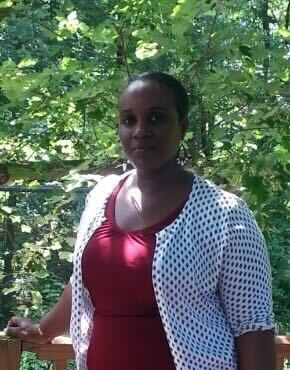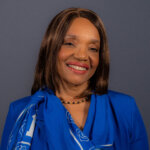Isolation is a feeling that people young and old have been experiencing during the COVID-19 pandemic. Those feelings may be especially powerful for parents dealing with an autistic child.
A local mother of five children, three of whom are autistic, says that “autism is a journey you cannot take alone.”
Dr. Abila Tazanu is a pediatrician, director and co-founder of Spectrum of Hope — Health, Wellness and Community Services in Prince George’s County, Maryland.
“My life’s calling is really to help people living with autism realize greater well-being,” she said.

She said that her calling began with the diagnosis of three of her children, but they were not diagnosed chronologically. The mother of four boys and one girl says her third child, her only daughter, was diagnosed first.
Tazanu said she noticed that when her daughter was 21 months old, she slowly stopped speaking and began withdrawing into herself. After testing and evaluations through Prince George’s County’s early intervention program, her child was diagnosed with autism. At the time, Tazanu was pregnant with her fifth and last child.
When that child, a son, was a year old, she noticed a lack of progression in speech.
“Aidan was not using words,” she said.
Tazanu also noticed behaviors such as spinning objects and hearing difficulties.
“At that point, my radar was already up,” Tazanu said. “I knew that there was something different about his development.”
Tazanu said it was a painful time and a “time of reflection.” She said she realized that she could make a difference. Tanzanu began contacting other parents and school officials, eventually creating a parent coalition.
That coalition led to founding a nonprofit organization, One World Center for Autism, which she ran for 14 years. She branched off to create Spectrum of Hope, a pediatric practice whose goal is to identify children with autism, link children to services and support families.
The autism diagnosis of Tazanu’s last child unfolded differently from the other two.
“He lived in the shadow of his two siblings who were more profoundly affected,” she said.
As she looks back on his childhood, she remembers him being a socially distant, but not having the same speech delays as the other children had.
She said he was initially diagnosed with ADHD. Then she began having social concerns with him through late elementary school and middle school. By the time he turned 18-years-old, Tazanu said he was also diagnosed with autism.
It’s not uncommon for a child to have both a diagnosis of ADHD and autism, according to Tazanu. “Hope” is a word she frequently uses with parents from the very beginning of her work with them.
Tazanu said it’s her favorite word in the English language. Secondly, she tells parents and caregivers that they’ve got to build connections.
“Autism is a journey you cannot take alone,” she said. “You will become overwhelmed by it. You will become more isolated, more depressed if you don’t make connections.”
She also urges parents to learn what autism looks like in their children.
“It’s a spectrum,” she says, “And, no two children look exactly alike.”
Dr. Tazanu was born and raised in Washington, D.C. Her father is from Cameroon in West Africa, and her mother is from Trinidad in the West Indies. They migrated to the U.S. in the mid-1960. She received her B.S. and M.D. degrees through a dual program at Howard University.
Spectrum of Hope — Health, Wellness, and Community Services can be reached by calling 301-850-8955 or emailing them directly at abila@spectrum-hope.com.
This is part of WTOP’s continuing coverage of people making a difference in our community authored by Stephanie Gaines-Bryant. Read more of that coverage.







